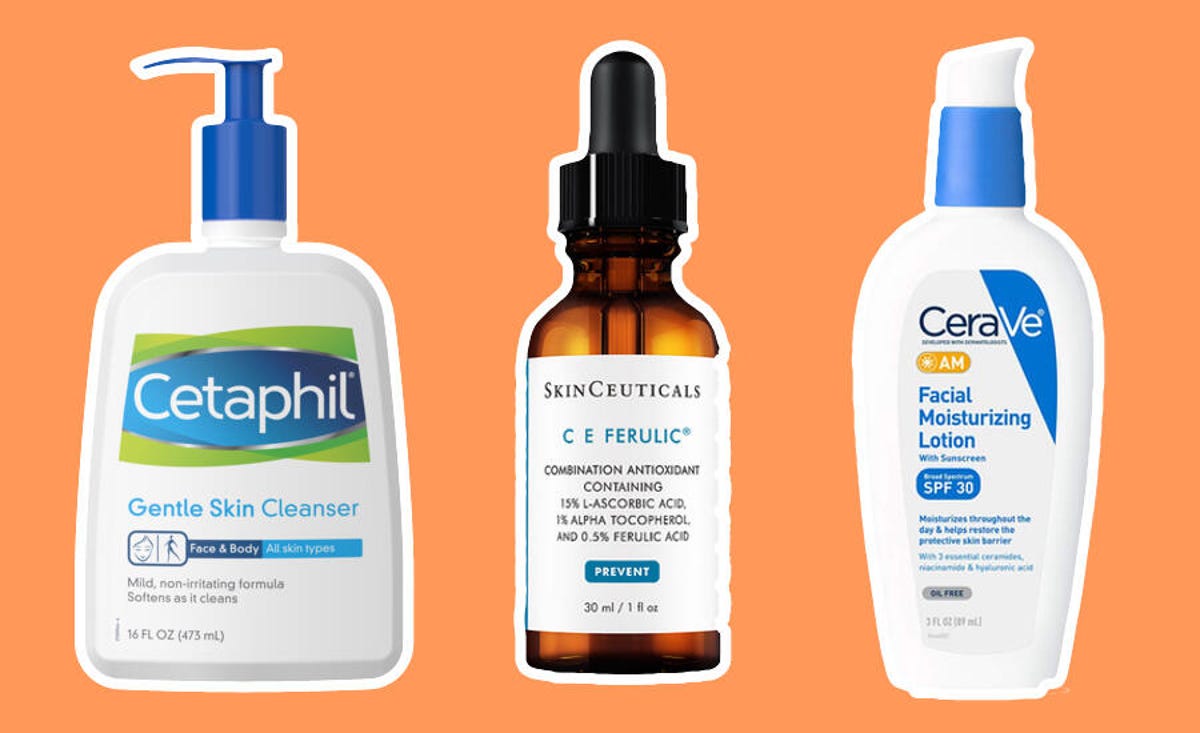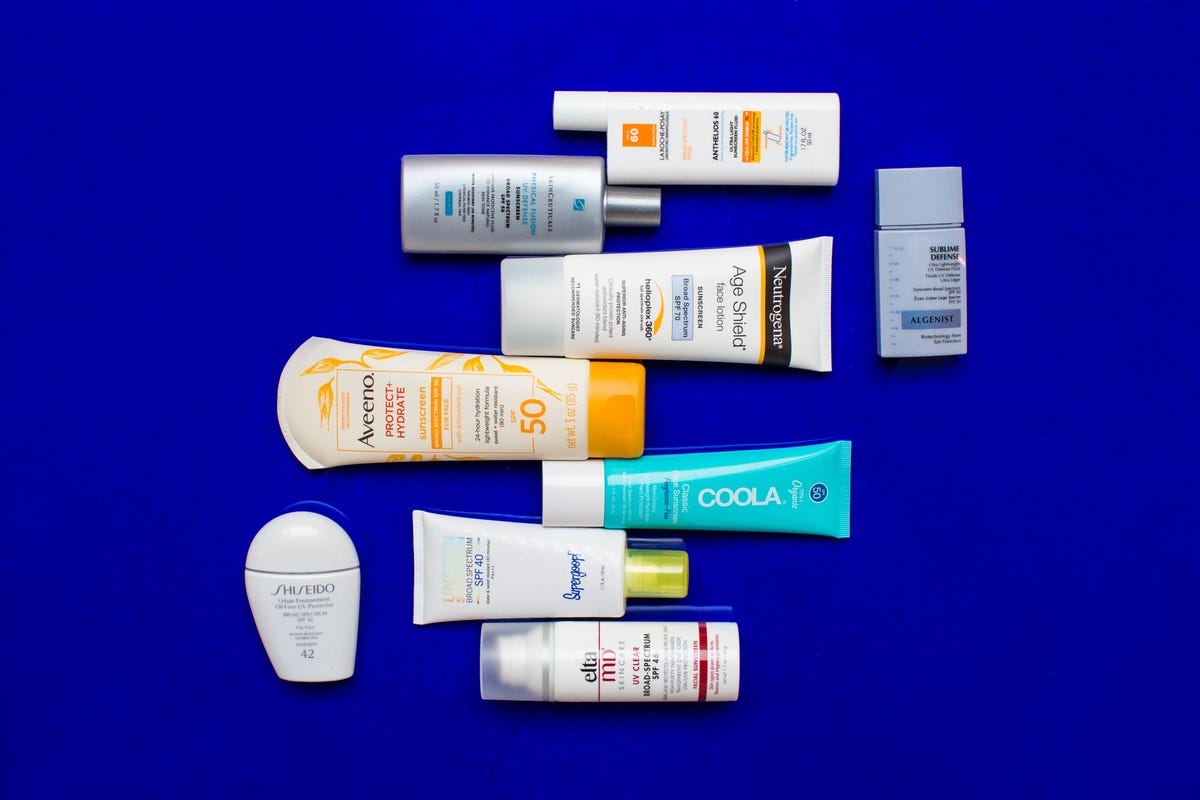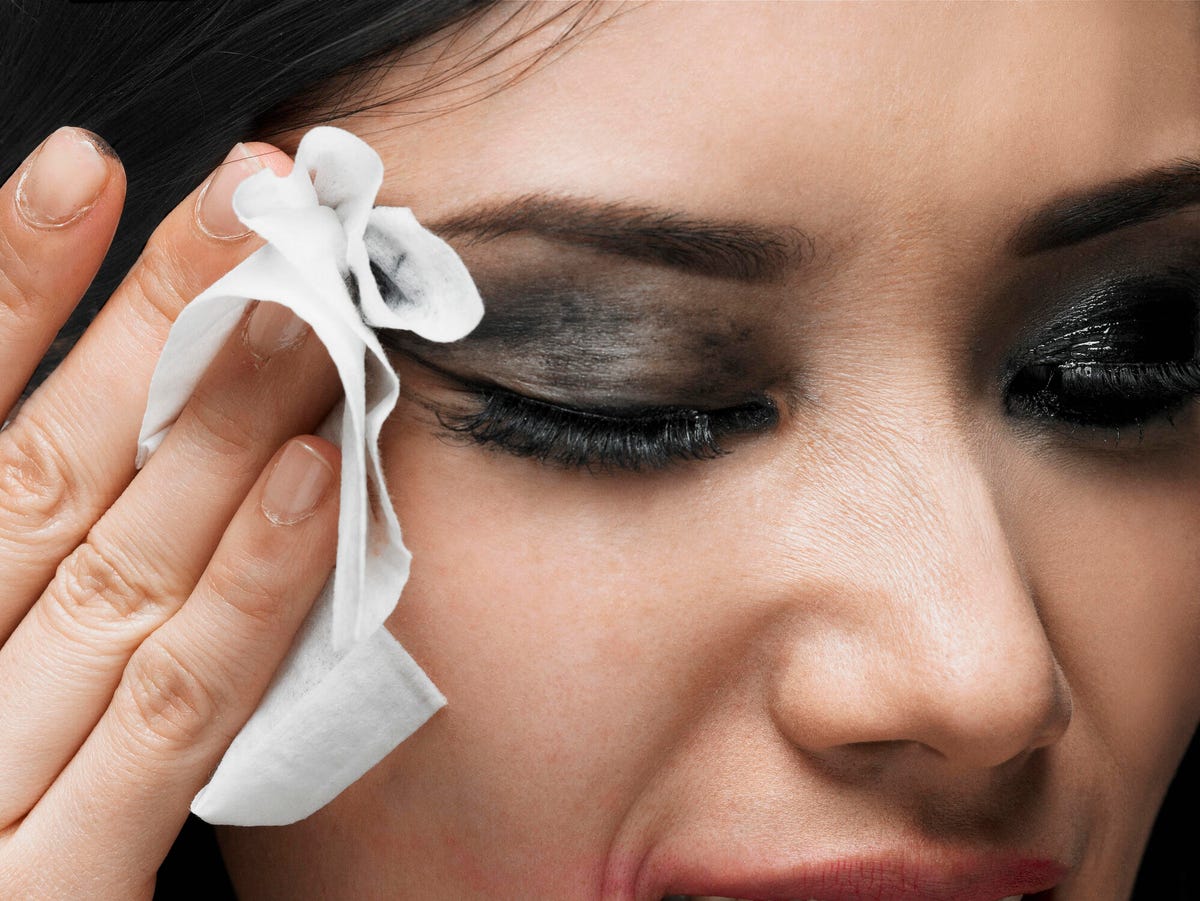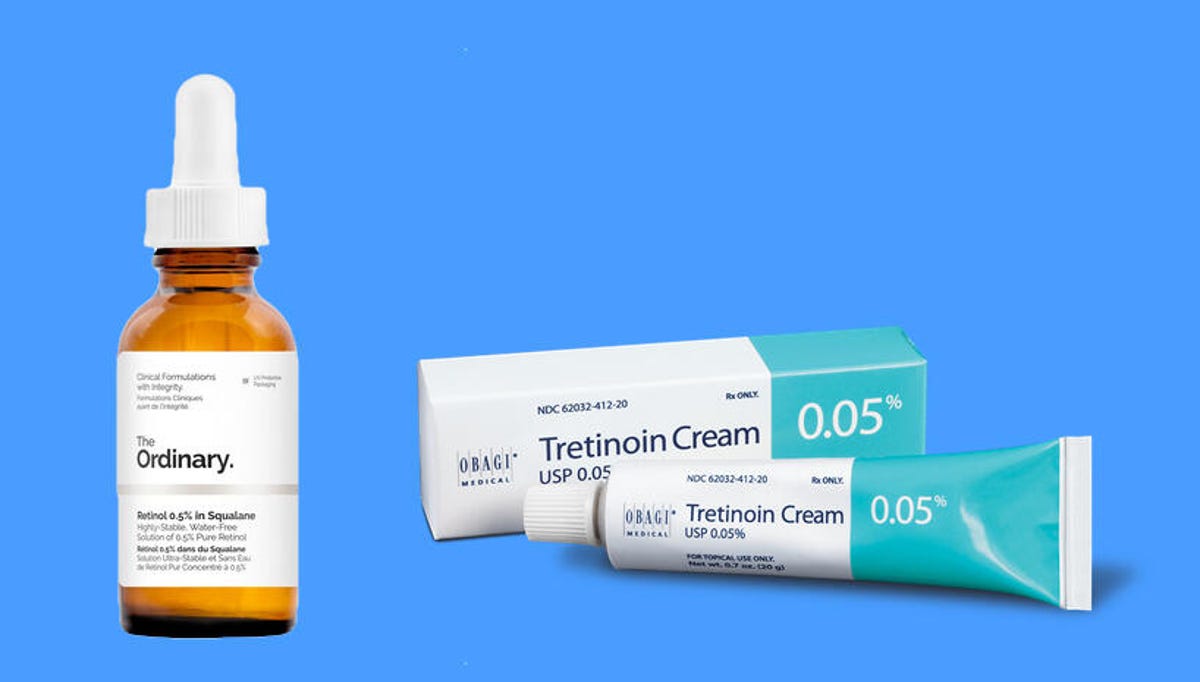Let’s face it, some new device or treatment seems to launch onto the market daily, making it hard to figure out where you should actually focus your time, energy and money.
There is also a huge spectrum of how people approach their skin care routine. One person religiously follows a 10-step skin care regimen, while another swipes a wipe across their face at night before falling into bed.
No matter where you fall on that spectrum (neither example is necessarily ideal) there’s always room to learn. To cut through the noise, I asked two dermatologists about how you should actually take care of your skin in this age of beauty influencers, products galore and general skincare confusion.
“Skin care is simpler than the beauty industry is trying to make it. The reality is the industry needs to keep creating a need to get consumers to buy more products,” Dr. Caren Campbell, a dermatologist, tells CNET. “Skin care for most people is basic — a sunscreen, antioxidant and retinoid are my holy trinity.”
Below are the basics of what you should know and what is worth your time when it comes to coming up with a skin care regimen that is effective (and that you’ll actually do!). And no, you don’t have to have a 10-step regimen to get better skin.
The ultimate morning skin care routine
For me, there’s nothing more refreshing than washing my face with cold water as soon as I wake up. But I’ll admit, sometimes I’m a little lost about what kind of cleanser is best in the a.m. — I mean, I don’t have makeup on and I didn’t just work out, so what should you use when your skin doesn’t feel dirty?
According Dr. Amie Sessa, a dermatologist, you should use a gentle cleanser and avoid using too-hot water (which can be harsh on your face).
Campbell’s favorite cleansers are Cetaphil Gentle, CeraVe Hydrating or Skinceuticals Gentle Cleanser. Just a note that the Cetaphil cleanser has parabens in it — so if you are avoiding products with them, the other two choices are paraben-free.

Face wash, serum and moisturizer with sunscreen.
Sarah Mitroff/CNET
Once you cleanse, you can immediately follow with a face moisturizer, or add an antioxidant serum before you moisturize if you’d like.
“Antioxidants should be used during the day, as this is when you are most exposed to sun and pollution. They cause reactive oxygen species (i.e., free radicals) that break down collagen and elastin (the building blocks of the skin) and mutate DNA leading to sagging, dull and pigmented skin,” Campbell says.
For dry or combination skin types she recommends a moisturizing serum with Vitamin C and ferulic acid, and for oily skin, an antioxidant serum that is lightweight or oil-free if you’re prone to acne to combat blemishes. If you want to add an extra boost of hydration, hyaluronic acid is a great option for layering under a moisturizer and works for most skin types. It also layers well with other products and is gentle.

Sunscreen should be part of your daily routine.
Angela Lang/CNET
The face moisturizer that you choose often depends on your skin type, concerns and personal preference. For most patients, Campbell recommends one with SPF 30. If you are acne-prone or have redness or brown spots, a moisturizer with a high concentration of niacinamide is good since it helps calm inflammation and lightens brown spots over time.
Finally, you should always complete your morning skin care routine with a facial sunscreen before applying your makeup or leaving your house.
The ideal evening skin care routine
Your evening routine can look pretty similar to your morning routine, with a few simple tweaks.
First, you should always remove your makeup and cleanse your skin — especially at night.
“Not washing your face before bed is one of the biggest skincare mistakes I see,” Sessa said. “Also, using makeup remover wipes as face wash every single day doesn’t cut it. They have too many chemicals, so only use these in a pinch but not as your regular washing method.”
Once you cleanse your skin, you can moisturize (again, always moisturize!) or apply an exfoliating product or retinol, depending on your needs.

If nothing else, make sure to remove your makeup at the end of the day.
Getty Images
When and how to exfoliate your skin
Sessa and Campbell advise against using harsh scrubs to exfoliate and instead opt for a chemical exfoliating product. Chemical exfoliation (like AHA or BHA) sounds scary, but it’s actually less abrasive on your skin than a scrub.
“As patients get older, AHA/BHA products should be incorporated to help speed skin cell turnover as this slows into our 40s,” Campbell said. But it’s easy to go overboard with chemical exfoliators, so it’s important to use them sparingly. “Over using AHA/BHA in younger skin types can lead to dryness and flaking and inability to tolerate more effective ingredients for anti-aging like retinoids.”

Over-the-counter and prescription retinol products can help reduce acne and smooth wrinkles.
Sarah Mitroff/CNET
When to use a retinol or retinoid
Both Campbell and Sessa recommend using a retinol at night (start with very sparingly once a week, and you can work your way up to more often). Although not an absolute essential, retinol (or Vitamin A) is very effective at treating signs of aging, acne and is widely used and recommended by derms and skincare professionals. That being said, it is very irritating (it can cause redness and peeling), which is why it’s best to ask your dermatologist about what kind of retinol is best for you and your skin needs.
“Many patients come in saying they can’t tolerate retinoid, so it is important to use only 1-2 times per week and work up slowly,” Campbell advises. You can also add a moisturizer on top to prevent dryness.
It’s also a good idea to wear extra sunscreen when you use retinol in your regimen since your skin is more sensitive to the sun. Be careful using retinol with or close to other products like chemical exfoliation as well, especially if you are sensitive. Again, it’s best to consult your dermatologist before using these more advanced products if you are unsure.
More skin care essentials:
The information contained in this article is for educational and informational purposes only and is not intended as health or medical advice. Always consult a physician or other qualified health provider regarding any questions you may have about a medical condition or health objectives.
